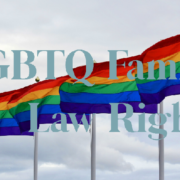Why Florida LGBTQ Families Should Be Concerned About Simmonds v. Perkins
If your child is born while you and your spouse are married, you both will always be considered the parents of the child, right? Well, not necessarily. LGBTQ families should be aware of their family law rights. And according to Simmonds v. Perkins, 247 So. 3d 397 (Fla. 2018), those family law rights may be at risk.
Facts of Simmonds v. Perkins
Simmonds v. Perkins involves a Husband, a Wife, and a Biological Father. While married to Husband, Wife has an affair with Biological Father. Wife gets pregnant from Biological Father. While still married to Husband, Wife gives birth to child.
Now, Biological Father did not know that Wife was married to Husband at the time of the affair, and once Biological Father did learn about the marriage, Wife told him that the marriage was only for “immigration purposes.”
After the child was born, Biological Father would visit the child regularly and paid Wife child support. Eventually, Biological Father filed an action in court to be named the child’s legal father, have all of the rights of a father (including ability to make decisions and right to spend time with the child), and take on the obligation of child support.
Wife files a motion to dismiss the action because the child was born during an intact marriage between her and Husband. Traditionally, that meant that there was a strong legal presumption that Husband was the legal father of the child, and it was very difficult for any third party to challenge this status. Husband would later join as a party and also requested that his rights be respected and the case be dismissed.







